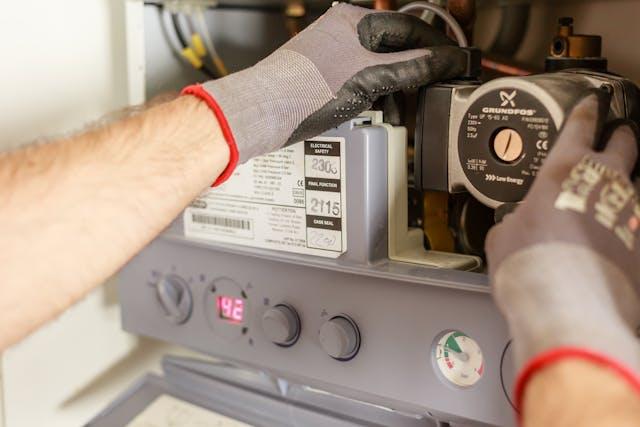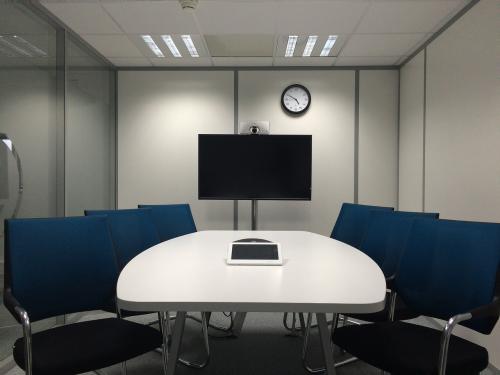Preventing Injury on the Job: Ergonomic Strategies for Plumbers & HVAC Tech

Plumbing and HVAC jobs are not for the faint-hearted, as they face all kinds of dangers. According to the U.S. Bureau of Labor Statistics, HVAC technicians have higher injury rates than other occupations. To reduce risks, workers must follow established safety guidelines.
What Makes These Jobs Dangerous?
Both HVAC technicians and plumbers face more than their share of injury risks.
HVAC Injuries
HVAC workers, like teachers, often have to adjust on the fly due to various uncertainties. They install and service heavy equipment such as water heaters, furnaces, and air conditioners. Common injuries include:
Burns
Muscle strains
Electric shocks
Injuries from using tools and equipment.
Plumbing Injuries
Plumbers, like welders, often work in tight spaces, such as tunnels and basements, and must be very careful. If the ground is wet or flooded, there’s the risk of electric shock or even death. The BLS also mentions the following as common plumbing injuries.
Cuts from sharp tools.
Falling off ladders.
Burns from hot pipes.
How to Prevent Injuries
The above are just a few common injuries plumbers and HVAC technicians suffer. You need a well-planned strategy in place to improve workplace safety and health. The following are some proven ways to reduce the risk of injuries.
Consider Work Injury Prevention Programs
Your company might benefit from an educational program dedicated to safety. Many hospitals and universities offer programs that teach employees and companies to reduce the risk of injury. One example is the Injury & Illness Prevention Program run by the University of California at Davis.
Follow OSHA Safety Protocols
Following Occupational Safety and Health Administration (OSHA) regulations is essential for safety. OSHA sets guidelines for industries such as HVAC in areas such as:
Ventilation
Handling hazardous materials.
Respiratory protection.
Working in confined spaces.
Electrical safety.
Follow Ladder Safety Rules
People often get injured by falling off ladders. Stay safer by following these tips.
Ladders must be the right size for the job. You shouldn’t have to reach for anything when on the ladder.
Make sure the ground is even.
Don’t carry anything heavy up or down the ladder. If you need to have objects, use a pulley system.
Ladders should be in good condition. Watch for broken steps or side rails.
Use the 3-point rule from hoops. Have at least two feet and one hand or two hands and one foot in contact with the ladder.
Know the Environment
People on the job often get injured due to a lack of preparation. Awareness goes a long way in keeping you safer. Before starting a job, workers should get familiar with the conditions. Identify potential safety risks.
For example, a building may have old wiring or uneven flooring. Toxic chemicals may be present. You can’t always predict every danger, but research and looking over the space before beginning work dramatically reduces the risk of unexpected hazards.
Use the Appropriate Protective Gear
The right equipment helps keep workers safe. Depending on the job, this might include the following.
Face masks are your friends. Masks protect you from toxic fumes, dust, and debris. In highly toxic environments, a respirator may be needed.
Slip-resistant shoes are additional insurance against falls. Many work environments are slippery. Steel-toed work boots are best for uncertain terrain.
A helmet or hard hat
Earplugs for working in loud settings.
Goggles to protect your eyes. Debris and particles can cause eye injuries
Sturdy gloves for safely handling glass, broken sheet metal, or debris.
Handle Chemicals Properly
Hazardous chemicals, on the other hand, are your enemies. They cause many injuries and illnesses. Chemicals can cause burns, respiratory ailments, and even explosions.
Be aware if a site is likely to have dangerous chemicals.
Keep chemicals in their original containers and keep them sealed.
If you aren’t sure what a particular chemical is, seek guidance before handling it.
Never mix chemicals.
Be Cautious Around Electricity
Electricity is always hiding behind a wall, a potential danger for HVAC workers and plumbers, and ready to strike like a snake. Dangers from wiring, appliances, faulty installations, and other issues can be present in residential and commercial settings. Keep these guidelines in mind.
Shut off the building’s main circuit breaker before starting any work.
Wear protective gear such as safety gloves and work boots.
Take precautions when using power tools. Use only grounded tools with three-pronged plugs.
Make sure tools are in good working condition. Inspect them for flaws, such as exposed wires. Make sure the electricity is working correctly before plugging it in. Don’t place cords where tripping is a risk.
Move Heavy Items With Care
Moving heavy equipment such as tools, pipes, water heaters, or boilers can cause injuries to your body's back, knees, or other parts. Always pay attention to how you lift and use the proper equipment when moving heavy items. If you can’t safely move something independently, wait for assistance.
Take Regular Breaks
When you’re tired, you’re more likely to lose concentration and pay less attention to your surroundings. You should take a break approximately every two hours. Even a short break where you walk around, and stretch lets you return to work with renewed focus.
Avoid Distractions
Distractions always threaten safety, whether you’re driving a vehicle, working in a basement, on a roof, or anywhere else. Always follow these guidelines to minimize distractions.
Avoid multitasking. Give all your attention to the task at hand.
If you are working with others, don’t get into long conversations. When talking, it’s natural to look at the other person, which can divert your attention from your work. Save the socializing for breaks.
Don’t use your phone or other devices while working. Step away from work if you need to make or receive a call. For example, climb down from the ladder and put down any tools you use.
Make Safety a Priority
https://unsplash.com/photos/man-in-brown-hat-holding-black-and-gray-power-tool-_2AlIm-F6pw
Improving safety should never be treated as an incidental or secondary concern. Every company should have a safety culture in place that makes protecting workers a priority. In addition, Work injury prevention programs can remind workers and supervisors to take the proper precautions. Ensuring employees have the equipment they need to stay safe is also essential.






